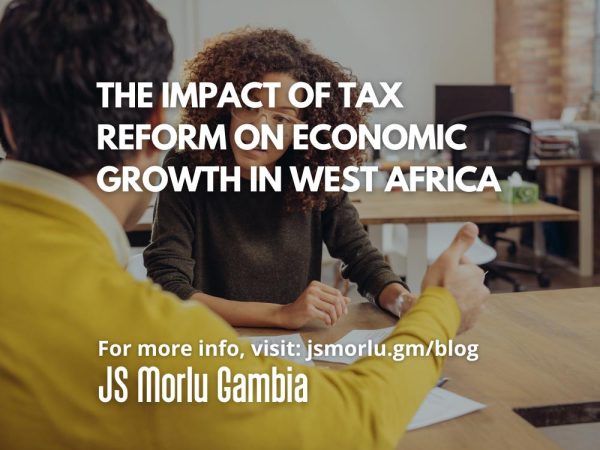Tax reform is a key policy tool for promoting economic growth in West Africa. By improving the efficiency and fairness of the tax system, tax reform can help to raise government revenue, which can then be used to invest in infrastructure, education, and other essential services. This can lead to higher economic growth, job creation, and poverty reduction.
There have been a number of successful tax reforms in West Africa in recent years. For example, Ghana introduced a new value-added tax (VAT) in 1998, which has helped to raise government revenue by an average of 10% per year. Nigeria also implemented a number of tax reforms in the early 2000s, which helped to increase government revenue by an average of 7% per year.
These tax reforms have had a positive impact on economic growth in West Africa. For example, Ghana’s economy grew at an average rate of 6% per year between 1998 and 2018, while Nigeria’s economy grew at an average rate of 7% per year between 2000 and 2018. These growth rates are significantly higher than the average growth rate for Sub-Saharan Africa, which was 4.5% per year between 1998 and 2018.
However, there are still a number of challenges to tax reform in West Africa. One challenge is the large informal economy, which makes it difficult to collect taxes. Another challenge is corruption, which can undermine the effectiveness of tax administration.
Despite these challenges, tax reform is still a key policy tool for promoting economic growth in West Africa. By improving the efficiency and fairness of the tax system, tax reform can help to raise government revenue, which can then be used to invest in infrastructure, education, and other essential services. This can lead to higher economic growth, job creation, and poverty reduction.
Here are some of the specific impacts of tax reform on economic growth in West Africa:
- Increased government revenue: Tax reform can help to increase government revenue by making the tax system more efficient and by broadening the tax base. This can lead to increased investment in infrastructure, education, and other essential services, which can boost economic growth.
- Improved allocation of resources: Tax reform can help to improve the allocation of resources by reducing distortions in the market and by making it easier for businesses to invest and grow. This can lead to higher productivity and economic growth.
- Reduced poverty: Tax reform can help to reduce poverty by providing more resources for social programs and by creating jobs. This can lead to a more equitable distribution of income and a more prosperous society.
Overall, tax reform is a positive force for economic growth in West Africa. By improving the efficiency and fairness of the tax system, tax reform can help to raise government revenue, which can then be used to invest in infrastructure, education, and other essential services. This can lead to higher economic growth, job creation, and poverty reduction.
Here are some of the recommendations for how to further improve the impact of tax reform on economic growth in West Africa:
- Strengthen tax administration: Governments in West Africa need to strengthen tax administration by investing in training for tax officials, improving information technology systems, and cracking down on corruption. This will help to ensure that the tax system is fair and that everyone pays their fair share of taxes.
- Broaden the tax base: Governments in West Africa need to broaden the tax base by including more sources of income and wealth in the tax system. This will help to reduce the reliance on indirect taxes, which can be regressive and distort the market.
- Simplify the tax system: Governments in West Africa need to simplify the tax system by reducing the number of taxes and by making the tax laws easier to understand. This will make it easier for businesses to comply with the tax laws and will reduce the cost of doing business.
- Make the tax system more transparent: Governments in West Africa need to make the tax system more transparent by publishing tax data and by engaging with the public on tax policy. This will help to build trust in the tax system and will make it more likely that people will comply with the tax laws.
By taking these steps, governments in West Africa can improve the impact of tax reform on economic growth.
